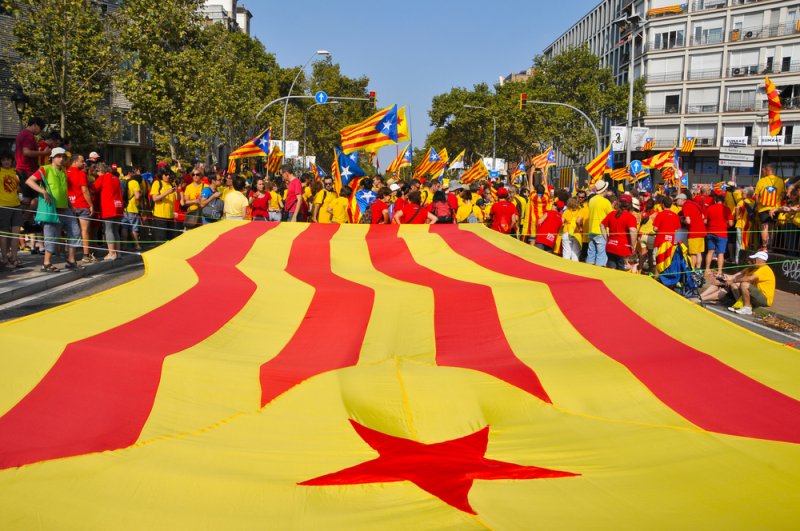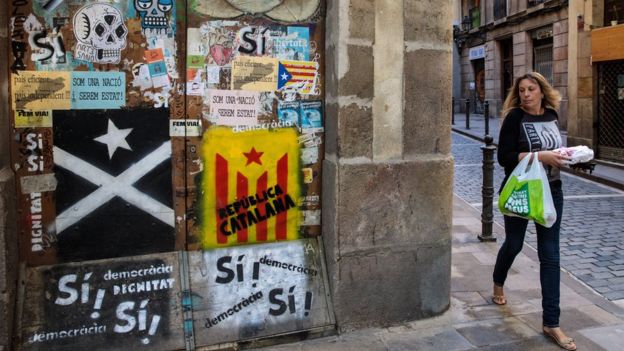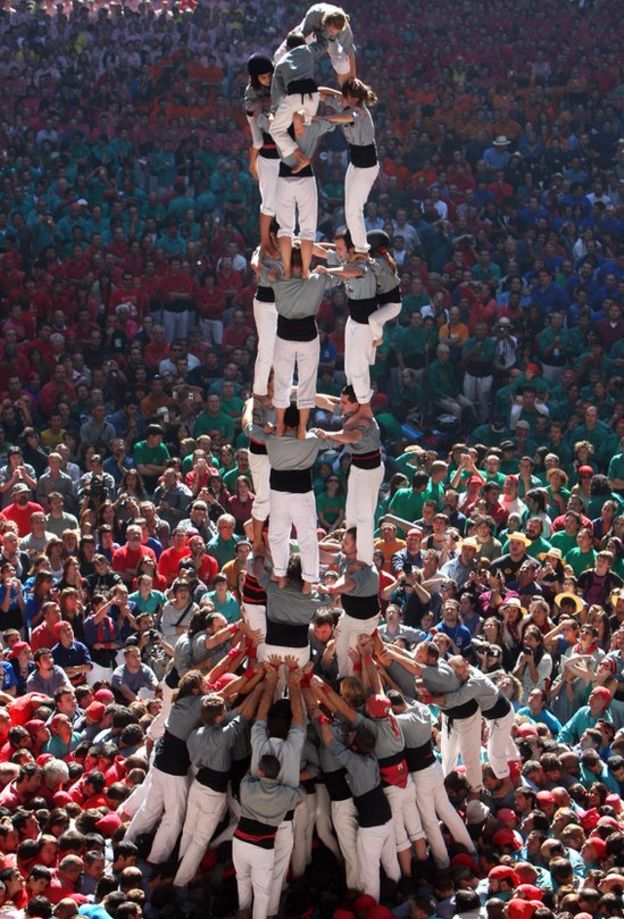Disir
Platinum Member
- Sep 30, 2011
- 28,003
- 9,607
- 910
Catalonia now stands on the brink of a historic election that will serve as a de-facto referendum on the Spanish region's independence. The electoral campaign begins today — somewhat fittingly on September 11, the National Day of Catalonia — and over 1 million independence supporters will gather on the streets on Barcelona.
On September 27, the region will take to the voting booths and if the separatist parties win an absolute majority many are predicting that they will begin preparation to secede unilaterally from Spain within 18 months.
Nominally, Catalonia will simply elect its third parliament in five years, but with the major pro-independence parties all campaigning under a joint secessionist banner and unionists obliged to campaign against this position, the election will function as a kind of mongrel independence referendum — only months before a general election is due.
The pro-independence faction sees the election as a unique opportunity to begin the emancipation of the Catalan people from the bullying, centralist Madrid government. Unionists see Catalan nationalism as a dangerous form of populism doomed to divide a region and cripple the economy. What both agree on, however, is that a unilateral declaration of independence would be a watershed moment in history, not only for Catalonia, but also Spain itself, Europe's fifth largest economy.
'The government is scared. They don't really understand what's going on here'
"It would be huge," said Alejandro Quiroga, a Spanish historian at Newcastle University in the UK. "It's never happened in the Western world that a country has unilaterally decided to quit in a peaceful manner and without any agreement with the other country. When we think about other referenda in Scotland or Quebec they were based on a previous agreement. But in the case of Spain there is no previous agreement."
'There's No Going Back': Why Spain and Catalonia Are on Immediate Collision Course Over Independence | VICE News
I doubt very seriously that there will be an independent Catalonia. Basque isn't getting it and it won't happen here.
On September 27, the region will take to the voting booths and if the separatist parties win an absolute majority many are predicting that they will begin preparation to secede unilaterally from Spain within 18 months.
Nominally, Catalonia will simply elect its third parliament in five years, but with the major pro-independence parties all campaigning under a joint secessionist banner and unionists obliged to campaign against this position, the election will function as a kind of mongrel independence referendum — only months before a general election is due.
The pro-independence faction sees the election as a unique opportunity to begin the emancipation of the Catalan people from the bullying, centralist Madrid government. Unionists see Catalan nationalism as a dangerous form of populism doomed to divide a region and cripple the economy. What both agree on, however, is that a unilateral declaration of independence would be a watershed moment in history, not only for Catalonia, but also Spain itself, Europe's fifth largest economy.
'The government is scared. They don't really understand what's going on here'
"It would be huge," said Alejandro Quiroga, a Spanish historian at Newcastle University in the UK. "It's never happened in the Western world that a country has unilaterally decided to quit in a peaceful manner and without any agreement with the other country. When we think about other referenda in Scotland or Quebec they were based on a previous agreement. But in the case of Spain there is no previous agreement."
'There's No Going Back': Why Spain and Catalonia Are on Immediate Collision Course Over Independence | VICE News
I doubt very seriously that there will be an independent Catalonia. Basque isn't getting it and it won't happen here.






